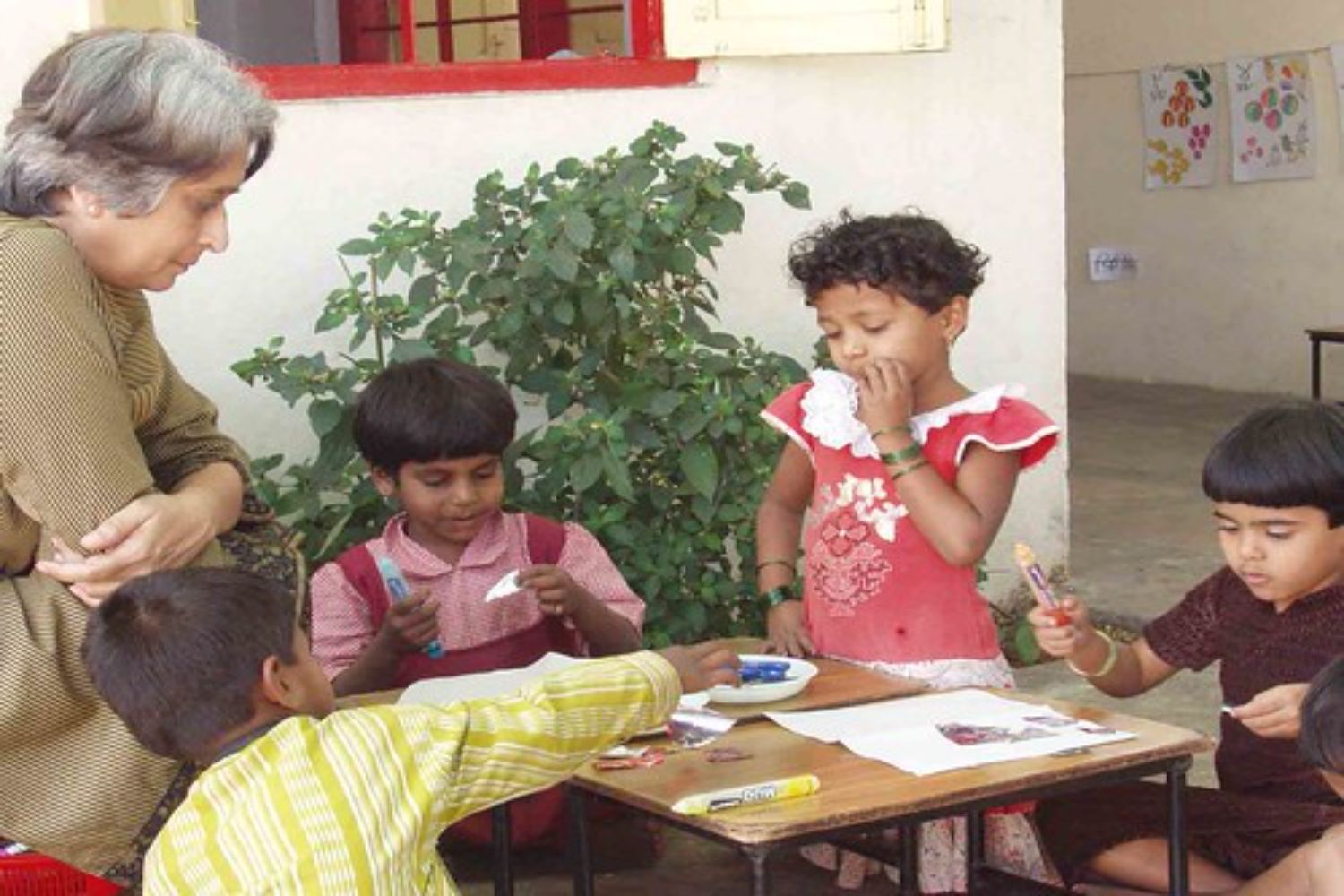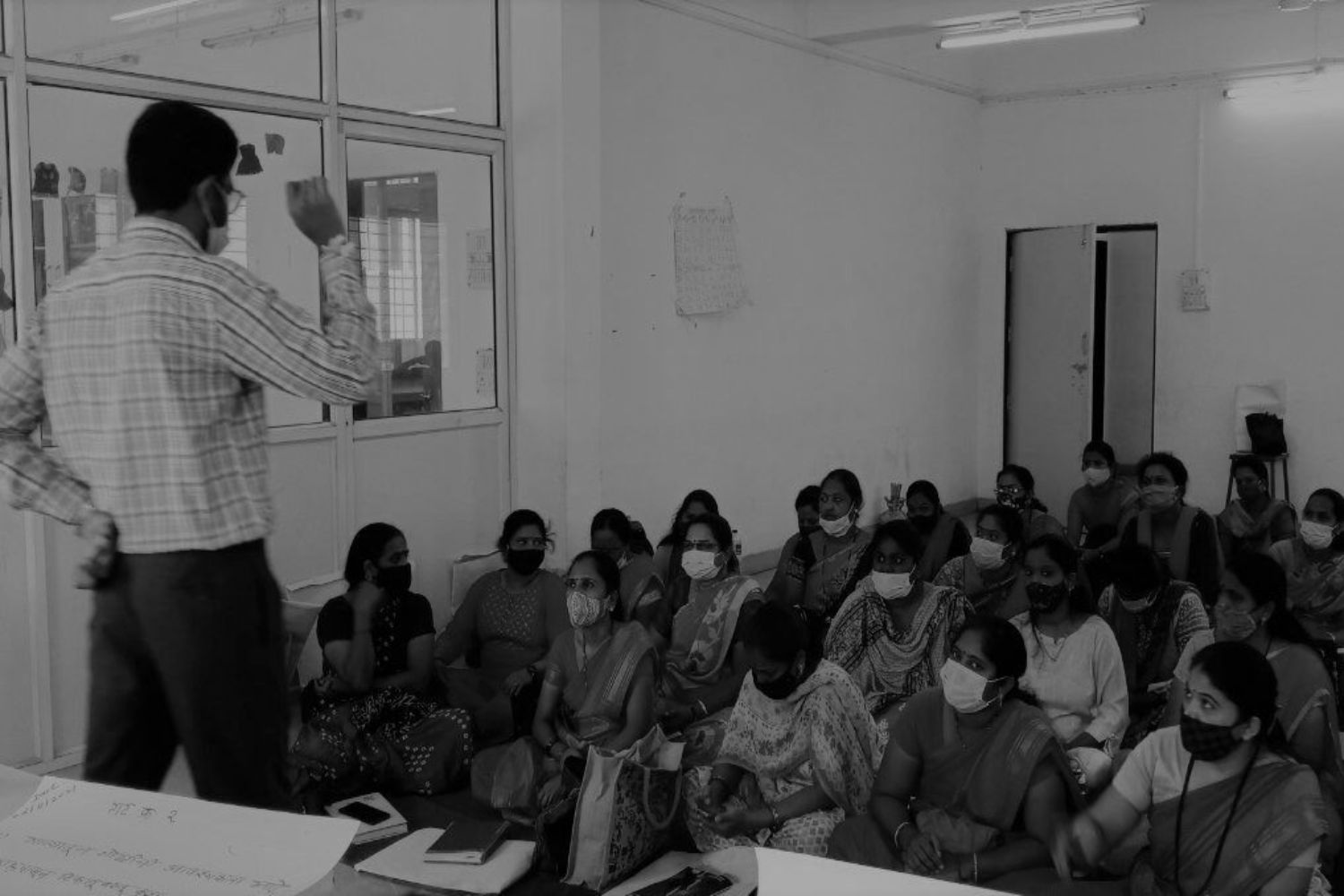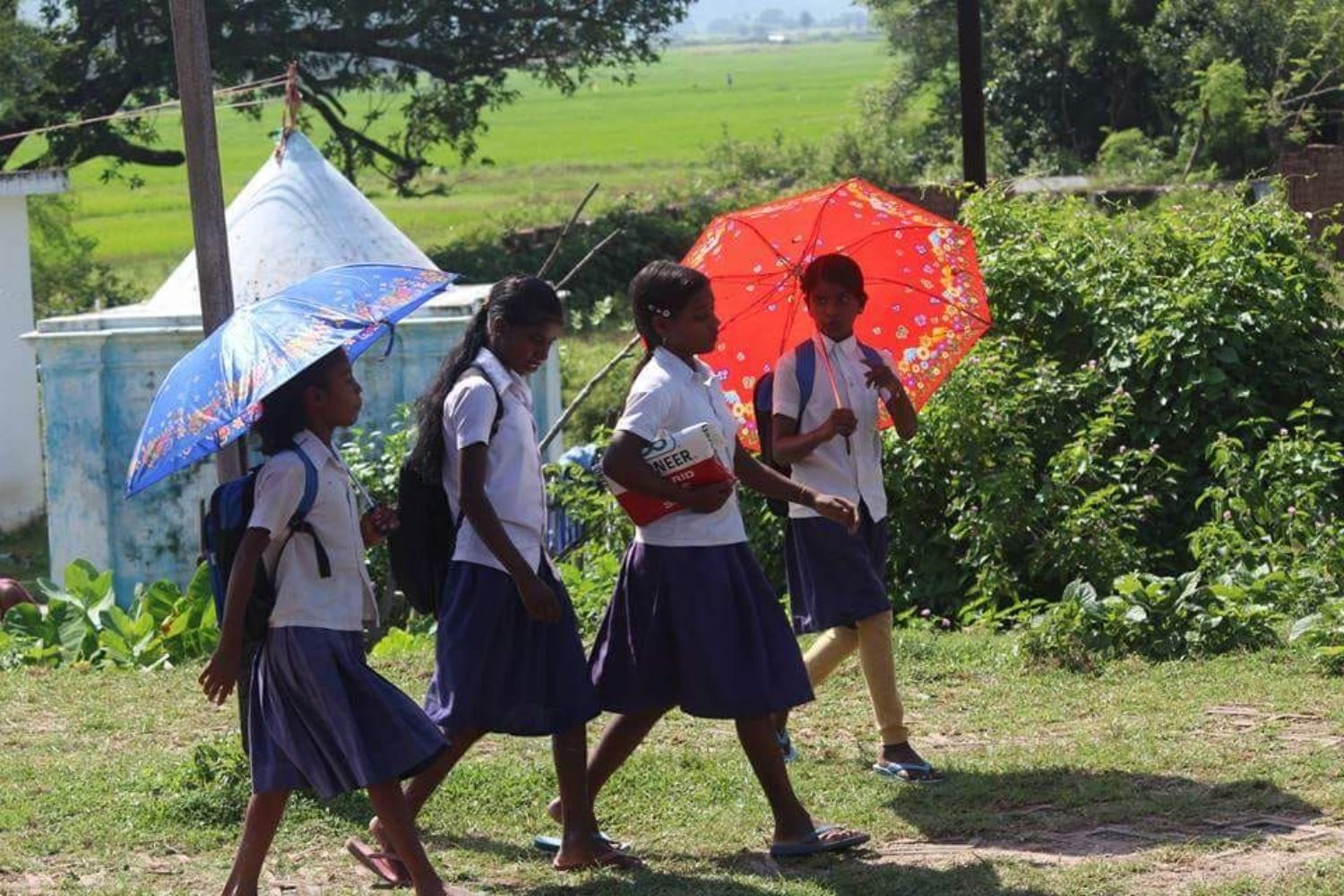Understanding the impact of the Covid-19 pandemic on young children and their parents
In her perceptive article, Neelima Gokhale discusses ways of understanding the effect of the Covid-19 pandemic on children and their caregivers. In a brief opinion piece titled ‘Empowering CSOs and Schools,’ Dr Venita Kaul succinctly shows us ways of negotiating the relationship between research, policy and practice in ECCE.

As the world slowly returns to normalcy following the Covid-19 pandemic, we are all trying to understand the extent of its impact on various aspects of our lives. We are aware of the physical and emotional trauma that many around us experienced. However, it is not always easy to gauge the impact of such events on very young children.
This is partly because they do not have the necessary skills and abilities to articulate their experience, and partly because the adults around them may not have the skills to notice and document the changes. Without a doubt, children will suffer both immediate and long-term effects.
There hasn’t been enough time to conduct a systematic study of such effects on young children yet. However, here are some observations of a few experienced early childhood teachers. These teachers have been working in a semi-rural community in Maharashtra for more than a decade.
They are, therefore, familiar with the patterns of behavior of young children attending their balwadis, and their parents. Like everywhere else, there was a complete collapse of familiar school structure in this community for children, parents and teachers during the pandemic.
The teachers tried various ways of staying in touch with the children and their parents for over 18 months. However, very little consistency was a challenge.
The children have been back in balwadis for the first time since the beginning of this school year (June 2022) after the 18-month long disruption. The teachers have noticed several changes in children’s behavior and their parents’ responses to the teachers’ concerns and suggestions. Following are some of the most significant changes.
- Much greater separation anxiety both in children and parents
- Deterioration in punctuality and regular attendance
- Poor personal hygiene as well as care of personal belongings
- Less interest in active, physical play by many children
- Generally low energy at home and in classrooms
- Much shorter attention span in classroom activities
- Unwillingness to share
- Much less cooperation and collaboration with peers
- Ignoring classroom rules
- Lack of appropriate responses to given instructions
- Much greater absenteeism even for very minor health reasons
- Increased dependency on electronic devices
These are possible indicators of the impact of facing an unknown and unexpected event and social isolation. Although all the observed changes cannot be attributed to the pandemic, it certainly seems to have played a major role.
Enjoying rigorous outdoor play comes naturally to children. However, since families were forced to remain indoors for the fear of getting sick, they had to find different ways of engaging themselves. Electronic media has been the most commonly used substitute.
Although parents understood the negative impact of this change, they found themselves ill-prepared to find meaningful alternatives to engage children constructively. Now it seems, it might take a while to restore the good healthy habits of active outdoor play.
We know that physical activity is necessary for good physical and mental health. Lack of physical activity often leads to restless behavior in children and adults. This could be the underlying cause for a general low energy level, lack of sustained attention and other difficulties in the classroom environment.
Children learn social norms and rules of behavior through ongoing interactions with others. Some of the older preschoolers were fortunate to have had some schooling experience prior to the pandemic shutdown.
However, some didn’t have any experience at all. Many young children missed out on valuable learning opportunities for a considerable period of time. Hence they exprience greater difficulties in learning to share, collaborate, follow rules, etc.
The preschool teachers, whose experiences are shared here, are confident in sharing their observations because most of them are part of this community. They also have had more than a decade of teaching experience in early childhood settings.
They, therefore, know the families, the expected behavior from their children, and those of their children’s teachers and the school. The teachers have found these behavioral changes in children and adults alarming.
These observations must be taken seriously, because there is irrefutable evidence that a sound foundation of social and emotional security is essential for children’s brain development as well as for their physical and emotional well-being throughout their lives. Entering a preschool is an important stage in the lives of young children.
As they step out into the wider social world, it is their first ongoing non-family social experience. They must learn to navigate the new challenges successfully. Therefore, acquiring self-help and communication skills becomes very important as these give them confidence when they face unfamiliar situations. The skills that help young children in a learning environment include the following.
- Learning to use the toilet appropriately
- Feeding themselves independently
- Letting teachers know when they need help
- Learning to follow classroom rules
- Responding to instructions and requests appropriately
- Following classroom routines
- Sharing toys
- Waiting for their turn
- Handling toys, books and other materials appropriately
This learning does not happen naturally. Parents have to coach their child to acquire these skills by acting as a model for them and expecting them to respond appropriately. They can engage in role play with their children to support such learning. Some examples of conversations parents can have with their children frequently before they enter the preschool follow:
“Let us practice being in school. I am the teacher, you want to go to the toilet, what do you do? Now, you be the teacher and tell me how to play with this toy.”
“You are a big girl/ boy now. When you are in school, you have to use the toilet by yourself.
Can you show me how?”
Or “When you are in school, you have to share your toys with your friends. It is much more fun to play with friends.” Or “You must learn to take care of your things.” Or
“Always ask your teachers for help. They will look after you when we are not there.”
Parents should always speak to their children about the school and the teachers positively to help them begin to trust their teachers and feel safe in the new environment. Such thoughtful preparation before entering preschool alleviates the stress stemming from the unfamiliarity of this major experience.
Including parents in young children’s learning is always beneficial for the children. However, the pandemic has highlighted the parents’ need for social interactions with other parents as well as teachers. Just as young children learn much from their peers, so do adults in their lives.
Like their children, parents did not have opportunities to share their concerns with other parents or be reassured by them or the teachers. This made it harder for them to help children learn what they knew was important.
The parents have recognized the need to learn strategies and skills to engage with their children more constructively at home. This is a good opportunity for ECCE professionals to work more collaboratively with parents. Similarly, the teachers have understood the parent’s need to learn more about their children’s development and learning.
This offered a great opportunity for parents and teachers to work collaboratively on understanding how children learn and what can be done to support such learning. This group of teachers have come up with some key information and strategies to share with the parents. They believe these will be helpful to children, parents and themselves.
It is important to help parents understand that at this stage (up to six years of age), learning the alphabet or numbers without understanding their usefulness is unhelpful. It may even be harmful to the children in the long run.
Instead, we can work on children acquiring more useful skills and abilities that will foster good learning habits that are essential for the later formal education. These are:
- Listening to instructions and responding to them appropriately (This indicates attention and comprehension)
- Working independently for sustained periods of time
- Completing a task in the given time
- Asking questions for clarity
- Sharing their thoughts and ideas with others
- Listening to others carefully
In preschool classrooms, children gain these skills through consistent routines and expectations of socially acceptable behavior. Children also learn much from their peers. Such learning is only possible the children have the freedom to work freely and independently.
In other words, children learn through active play within the framework of ground rules of the learning environment. This group of teachers have been using play as the primary learning tool in their classrooms for several years. They feel confident of its benefits to children and will try to inform parents of the same in a more proactive manner. They are planning to use the following strategies in the next academic year.
- More frequent meetings with parents in smaller groups rather than whole class groups so that they can have more meaningful conversations Encourage parents to spend at least one day in their child’s classroom for nonparticipation observation. This should help them to get a better understanding of the classroom practices, teacher–children interactions, patterns of communication, as well as their own child’s behavior.
- Encourage parents to share their concerns, to help them where possible, and support them to seek the right help.
- Explain to the parents of the significance of ‘school readiness’ for preschoolers as explained above, so that children can be helped to develop skills in a planned manner and feel confident in an unfamiliar environment.
Such efforts both by teachers and parents are needed to construct a trusting, safe and positive learning environment for children and their families, where mutual concerns can be shared and successes can be enjoyed. As we have learnt, social isolation can be very hard on children and adults. Working towards building a community that can face challenges together seems like the right thing to do, which this group of teachers is committed to doing.




No approved comments yet. Be the first to comment!